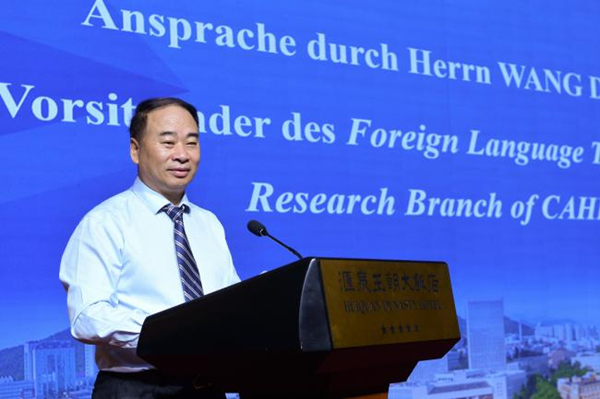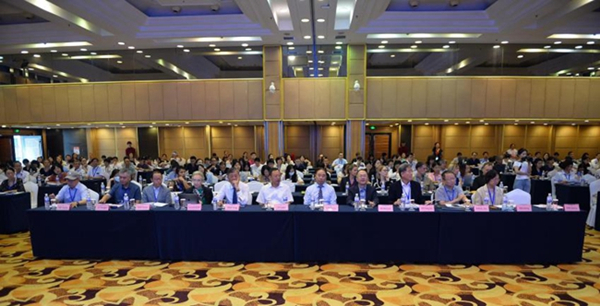- Research
- Research Centers
- Journals
- Admission
- Introduction
- Programs
- Application
- Alumni & Giving
- Alumni Club
- Giving
The Asian Germanists Conference, co-hosted by the Foreign Language Teaching and Research Council of the China Association of Higher Education (CAHE) and the School of Foreign Languages at Qingdao University, took place in Qingdao, Shandong province from Aug 26 to 28.
Wang Dinghua, president of CAHE’s Foreign Language Teaching and Research Council and secretary of the CPC Beijing Foreign Studies University (BFSU) committee, and Jia Wenjian, deputy secretary of the CPC BFSU committee and president of the university, who also holds a post at the Academic Degrees Committee of the State Council, attended the conference's opening ceremony.

Wang Dinghua, president of CAHE’s Foreign Language Teaching and Research Council and secretary of the CPC BFSU committee, delivers opening remarks. [Photo/bfsu.edu.cn]
In his opening remarks, Wang said Germanic studies not only enrich people’s understanding of Germanic languages and cultures but also offer crucial perspectives for cross-cultural communication in a globalized world.
The conference, which brought together scholars from Asian and German-speaking countries, aimed to foster dialogue, exchange and cooperation between China and neighbors like Japan and South Korea, as well as German-speaking countries, including Germany, Austria and Switzerland. It helps to promote mutual learning among civilizations and strengthen people-to-people bonds, according to Wang.
Wang proposed four key areas for the future development of the conference in the new era: Enhancing fundamental research, emphasizing international exchange, addressing practical applications and conducting collaborative studies.

Participants at the Asian Germanists Conference [Photo/bfsu.edu.cn]
The conference, with the theme of "Technology, Society, Culture: Contemporary Challenges and Opportunities in Germanic Studies", featured in-depth discussions on the Chinese narrative in German literature, digital Germanic studies and language interactions in cross-cultural contexts.
The event covered various fields, including literature, linguistics, translation studies, intercultural communication, German language teaching and research on German-speaking countries. Nearly 200 scholars from seven countries – China, Japan, South Korea, Germany, Poland, Mongolia and Indonesia participated in the conference.